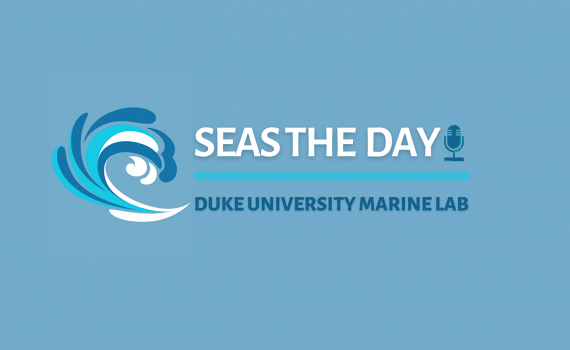In 2022, we published three resiliency fables written by students participating in a Duke Engage summer program at Duke University Marine Lab. The fables -- Ollie the Orca. Gilbert the Grouper, Terry the Tree and The Live Oak and The Wind -- were an experiment, developed as part of a resiliency curriculum being co-developed by the Community Science Initiative and Carteret County middle school teachers. Little did the students know, the fables would go on to become the centerpiece of the Ready, Set, Resilience curriculum, and participating middle school students would even write their own fables. Under the guidance of middle school teachers Robert Condie and Kayla Ipock, 8th grade students at Broad Creek Middle School wrote a total of 60 fables! This episode features 6 of our favorites.
scicomm
In this episode, the students in the Biology and Conservation of Sea Turtles travel class document their trip to Culerbra, Puerto Rico, and St. Croix, in the US Virgin Islands in a kind of ‘travel diary’. Reflecting on what they did, who they met, and how they felt, the students effectively capture the very essence of travel courses and the heady combination of experiential learning and personal development. Part of our Sea Turtles series.
In this episode, the students in the Biology and Conservation of Sea Turtles class from the Duke Marine Lab explore the past, current and future status of sea turtle conservation on St. Croix, in the US Virgin Islands. Based on interviews conducted during a 10-day immersive experience on St. Croix, the episode reviews the successes, challenges, and unknowns of conserving and managing sea turtle populations on the island.
In this third installment of a three episode series, Spencer Moyle reads his story of Terry the Tree and Rory McCollum follows with The Live Oak and the Wind. Both stories were written as part of a Duke Engage program exploring concepts of social and ecological resilience. The program was run by Dr. Liz DeMattia, director of the Community Science Initiative, with the assistance of PhD student Laura Givens, who was the site coordinator for Duke Engage, in 2022. Following the 'reading', Laura interviews the authors on their experiences in the program and how they crafted their stories.
Listen on Apple Podcasts In this second of a three episode series, Andres Hernandez reads his story of Gilbert the Grouper. The story explores concepts of resilience and was written as part of a Duke Engage summer program at Duke University Marine Lab. The program was run by Dr. Liz DeMattia, director of the Community Science Initiative, with the assistance of PhD student Laura Givens, who was the site coordinator for Duke Engage, in 2022. Following the 'reading', Laura interviews Andres on his experiences in the program and the logic of the story.
In this first of a three episode series, Amy Buckalew, reads her story of Ollie the Orca. The story draws explores concepts of resilience and was written as part of a Duke Engage summer program at Duke University Marine Lab. The program was run by Dr. Liz DeMattia, director of the Community Science Initiative, with the assistance of PhD student Laura Givens, who was the site coordinator for Duke Engage, in 2022. Following the 'reading', Laura interviews Amy on her experiences in the program and the logic of the story.
Becca Horan interviews Duke Marine Science and Conservation alumna and current postdoctoral fellow, Dr. Hillary Smith, to learn more about her research on gender equity in small scale fisheries and how she navigated the PhD while becoming a parent, mentoring undergrads, and facing the daunting task of dissertation writing with a buddy.
In this episode, Cat and Jingyi discuss artificial islands and their role in ocean development. They examine some of the island nations in the Pacific Ocean, such as Kiribati, that are ‘sinking’ due to sea-level-rise and explore how artificial islands might offer such places a solution to this imminent crisis.
In this episode, Lisa Campbell shares a story of sailing, science, and Sargassum. Based on a 3-day research cruise to the Sargasso Sea, the story was originally developed during a workshop with The Story Collider, a non-profit organization that “helps people of all walks of life -- from scientists to doctors to patients to engineers to teachers to firefighters -- tell their true, personal stories about science.” Not only did the workshop inspire this particular story, it motivated Lisa to think about podcasting as something she might do.
How old were you when you found out whales were mammals? It feels like an obvious fact now, but did you ever wonder who first decided to put these fish-like titans of the ocean in the same group as mice and foxes? In this episode, Brandon Gertz follows the story of how whales became mammals, from the birth of natural history over 2,000 years ago to modern genetics.

